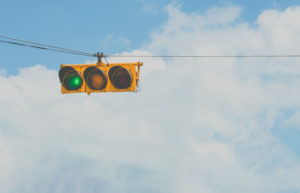Does Feeling Awkward Ever Hold You Back?
I’m speed-walking through the airport, on the phone with my Dad, when he suggests I look up one of his friends in my destination city. That’s awkward. I’ve never heard of this guy and he’s not my contemporary. But I went ahead and googled the guy and invited him to lunch.
I drove my rental car to his office between my other meetings and told the receptionist that I’d come for a meeting with Mr. Ballinger. I’m thinking: I have no agenda. This is really awkward. But Ballinger seemed like a nice guy and suggested I ride with him.
He played classic rock in the car, talked about nearing retirement, and had little patience for long responses to his questions. Three or four times over lunch, I was sure we’d run out of things to talk about. But despite feeling awkward most of the time, I stayed engaged and interested in him.
Nothing specific resulted from my lunch with Ballinger. Perhaps one day it will lead to business with his company, or I might get introduced to someone through him, or my car will break down near his office and I’ll know who to call. Who knows?
What I do know is that the awkwardness didn’t stop me.
Has awkwardness ever stopped you?

I’ve thought about what would have happened if awkwardness had stopped me in the past.
I never would have asked my wife on a second date. I never would have asked a personal contact for a referral into what became one of my best clients. I never would have worked in sales.
All of those things and many others have been so awkward.
Awkwardness has also bested me on days. I’ve held the words inside when I should have said them. I’ve kept my hand down when I should have raised it. I’ve rationalized not calling someone when I should have. I’ve turned down the invitation when I should have said yes.
What to Do with Awkwardness?
A couple of recent books have claimed that awkwardness can be a gift and awkward tendencies can be alleviated.
Joshua W. Clegg, an associate professor of psychology in the John Jay College of City University of New York, theorizes that social awkwardness works as a “social early warning system [that] motivates us to act on that information and bring our social environment back into equilibrium.”
But the advantages of awkwardness have their limit. “If socially awkward experiences lead one to panic and avoidance, then these experiences can become central to a self-perpetuating pattern of social fear and avoidance,” Clegg says.
Bethany Teachman, a professor in the University of Virginia’s Department of Psychology explains, “We all have these [experiences]. The trick is deciding how meaningful they are and how much they’re getting in the way for you. Typically, it’s not the awkward moments that are the problem, it’s how you interpret them or make sense of them.”
She suggests, “The next time you have the thought, ‘Oh my gosh, she thinks I’m a total idiot,’ ask yourself, ‘Is there really evidence to support that thought?’ And, if there really is some kind of negative judgment, is it really the end of the world?”
She goes on to say that failure to challenge these thoughts and allowing awkwardness to hold you back “can actually make that anxiety and that sense of awkwardness worse because you’re not getting to find out that you can recover.”
That said, Teachman advises, “If you’re at the point where managing those awkward feelings is actually causing impairment for you because it’s getting in the way of having a social life or fulfilling the social roles you want or need to fulfill, then there’s lots of help available.”
For instance, I took a Dale Carnegie course to improve my confidence and people skills. That, and the continued willingness to call people like Ballinger, has made awkward more of a companion than an enemy.
When does awkwardness hold you back?









Comments are closed here.